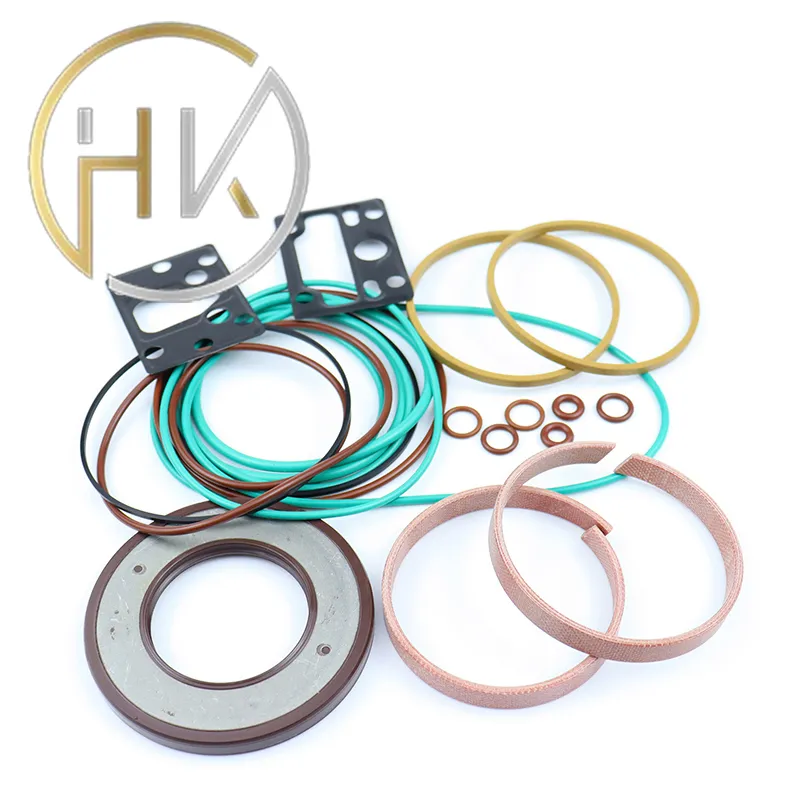Nov . 21, 2024 00:55 Back to list
seal kit for pump
Understanding Seal Kits for Pumps Importance, Applications, and Maintenance
Seals play a crucial role in the operation of pumps, ensuring that fluids remain contained within the system while preventing leaks and maintaining pressure. A seal kit for a pump is an essential component for effective pump maintenance and performance. This article will delve into the significance of seal kits, their applications, the types available, and tips for proper maintenance to ensure longevity and efficiency.
The Importance of Seal Kits
Seal kits are essential for preventing leaks and ensuring that pumps operate efficiently. In any pumping operation, whether it involves water, chemicals, oil, or other fluids, the integrity of the seals directly affects the performance and reliability of the pump. Over time, seals can wear down due to constant pressure, temperature variations, and exposure to various fluids. A compromised seal can lead to leakage, which not only reduces the pump’s efficiency but can also cause environmental and safety hazards. Therefore, having a reliable seal kit for replacement is vital for maintaining the pump's operational integrity.
Applications of Seal Kits
Seal kits are used in a wide variety of pump applications across different industries. These include
1. Water and Wastewater Treatment Pumps in these facilities must contain and transfer water efficiently. Reliable seals are crucial for preventing leaks that can contaminate clean water supplies.
2. Chemical Processing Seal kits used in chemical pumps must withstand aggressive substances, high pressures, and temperatures. Materials such as PTFE (Teflon) and FKM (Viton) are often employed to ensure compatibility and prevent degradation.
3. Oil and Gas In this industry, seals must withstand high pressures and volatile substances. Seal kits designed for these pumps address challenges such as thermal expansion and chemical compatibility.
4. Food and Beverage Sanitary seals are critical in food pumps to prevent contamination. These seals need to comply with health regulations while ensuring a tight seal to maintain product integrity.
Types of Seal Kits
Seal kits vary depending on their application, material composition, and design. Some common types include
1. O-Ring Kits Comprising rubber rings used to create a tight seal in joints, O-rings are versatile and used in many pump types.
seal kit for pump

2. Lip Seals These are designed to retain lubricants and prevent contamination, commonly used in rotary pumps.
3. Mechanical Seals These seals provide a reliable barrier in high-pressure applications, especially in centrifugal pumps. They consist of two main parts, a rotating ring, and a stationary ring, which create a tight seal when pressed against each other.
4. Gasket Kits Used to create a seal between two surfaces, gaskets come in various materials including rubber, silicone, and metal.
Maintenance and Replacement
Maintaining the integrity of seals is crucial for the overall health of any pump system. Here are some tips for ensuring that seal kits last longer and perform better
1. Regular Inspection Routine checks can identify wear and tear before they become issues. Look for signs of leaks or cracks in seals.
2. Proper Installation Follow manufacturer guidelines for installing seal kits to avoid misalignment that can lead to premature failure.
3. Use Quality Components Always opt for high-quality seal kits from reputable suppliers. Inferior quality materials can lead to frequent failures and increased maintenance costs.
4. Monitor Operating Conditions Be aware of the pressures and temperatures your pump operates at; these factors can significantly affect seal longevity. In some cases, you might need to switch to seals specifically designed for extreme conditions.
5. Scheduled Replacement It’s advisable to replace seal kits at regular intervals, even if no signs of wear are apparent, especially in critical applications.
Conclusion
Seal kits for pumps are indispensable for ensuring efficient and safe fluid handling across various industries. By understanding their significance, types, and maintenance best practices, operators can ensure their pumps operate reliably and reduce the risks of failures and leaks. Investing in quality seal kits and adhering to a diligent maintenance routine is key to maximizing both performance and longevity of pump systems.
-
TCN Oil Seal Metal Ring Reinforcement for Heavy Machinery
NewsJul.25,2025
-
Rotary Lip Seal Spring-Loaded Design for High-Speed Applications
NewsJul.25,2025
-
Hydraulic Cylinder Seals Polyurethane Material for High-Impact Jobs
NewsJul.25,2025
-
High Pressure Oil Seal Polyurethane Coating Wear Resistance
NewsJul.25,2025
-
Dust Proof Seal Double Lip Design for Construction Equipment
NewsJul.25,2025
-
Hub Seal Polyurethane Wear Resistance in Agricultural Vehicles
NewsJul.25,2025
-
The Trans-formative Journey of Wheel Hub Oil Seals
NewsJun.06,2025
Products categories
















